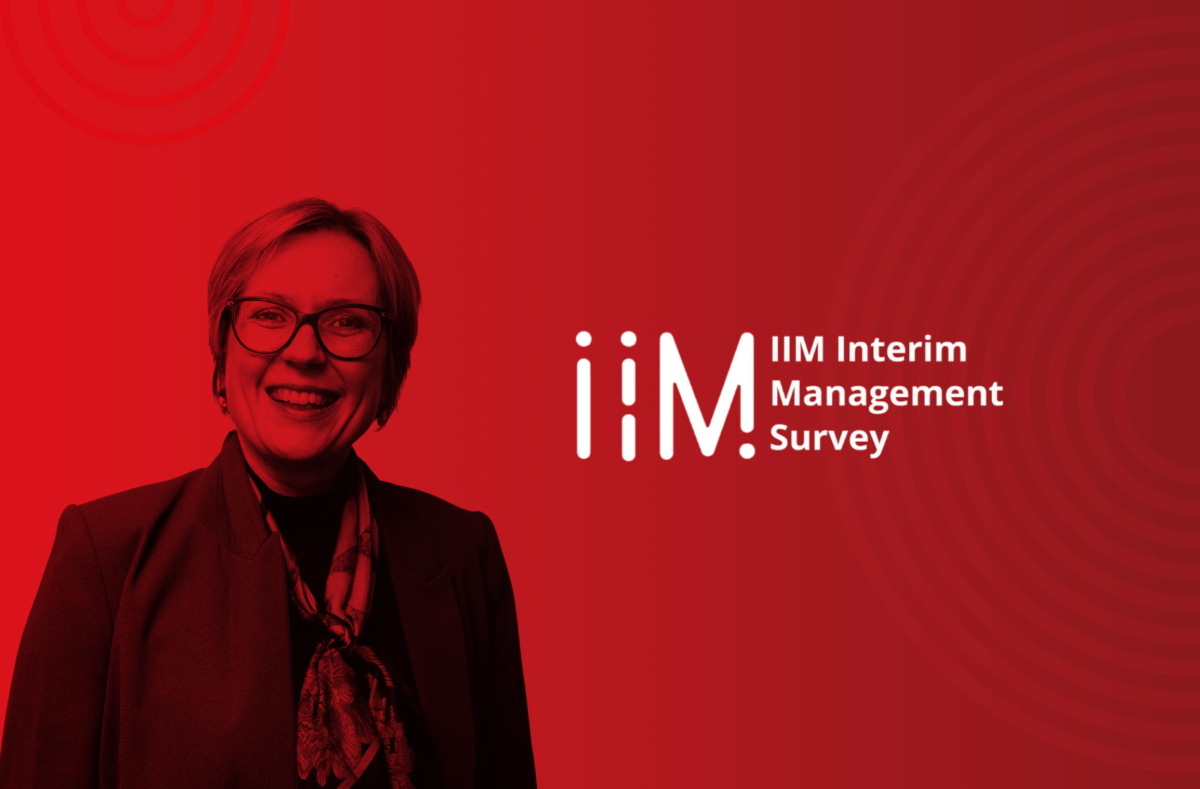To many, December and January are the reflective months, but as an interim recruiter, March is my month of reflection, just before the launch of the annual Institute of Interim Management (IIM) survey, now in its 16th year. I take this time to think back over the last 12 months and anticipate what is likely to be reflected in this year’s results.
For anyone new to the industry or unfamiliar with the survey, it gives a valuable snapshot of the sector – from market and sector activity, assignment and provider profiles, interim perspectives and outlook for the future. Last year over 2000 interims completed the survey and it is recognised as the most comprehensive and prestigious insight into the Interim Management market.
Here is a link to the back catalogue of past surveys.
It’s been quite a disrupted world since the 2024 report publication. We had just elected a Labour government for the first time in 14 years and most of probably didn’t expect to have major reform on the horizon in the NHS, Local Government and Civil Service. Inflation is rising and the spring statement heralds more financial restraint to cover the gap in UK borrowing. Increased energy tariffs and council tax will also be landing on most doorsteps shortly. Against a backdrop of worldwide political disruption and volatility, it will be interesting to see how this has shaped the perspective of interims this year and their experience of the recent interim market.
I will use the findings as a barometer for the market as a whole, comparing results with what I am seeing as an Interim recruiter within Local Government. For interims, it can be a great way of assessing what skill set areas are most in demand, market fluctuations and how others are securing opportunities.
What skills sets are in demand?
In 2024 five most in demand skills were;
- Change and Transformation (19%),
- Accountancy and Finance (17%)
- Programme and Project Management (10%),
- Board/ General Management (9%)
- HR (6%).
Perhaps not surprisingly, with what was on the horizon, Accountancy and Finance saw the largest growth of 6%. It will be interesting to see whether demand for transformation and programme management will be sustained. Technology and efficiency change programmes will be the focus for many.
Finance has certainly dominated GatenbySanderson appointments as public sector organisations struggle to balance their books. We have also seen rising demand for commercially focused finance professionals to help organisations move towards a more strategic approach to financial management and budgeting. I expect the 2025 to show a further increase in these skills.
I was surprised to see HR reduced in roles last year. However, as only 25% of the survey participants were women, 5% down in the previous year, and women dominate the HR profession, the data could be skewed. I expect to see increased demand in 2025 survey as equal pay, restructures, workforce planning and union negotiations needs increase across the public sector.
Market movements
As tough financial measures kicked in, it’s perhaps no surprise that the public sector share of all interim work dropped by a significant 10%. Better news came that day rates increased on average 4% to £706. I expect these to go up further in 2025 as inside IR35 interims look to increase day rate to offset changes to NI that comes into effect in the next tax year.
While also billable days dropped sharply, average assignment length remained almost the same as 2023 at 9.5 months. I expect this to be similar in the 2025 survey, with the gaps between assignment, more likely to increase from the current average of 2.8 months.
Complete the 2025 IIM survey here.
How are people securing assignments?
Around 56% of interims source assignments via a third party, though personal networks are also important. While the IIM survey does not ask this question specifically, I think there has been and will be an increase in white labelling (associate roles) as organisations procuring shorter term consultancies for large scale transformation, rather than the risker option of developing their own change/ transformation teams.
Is the ‘typical interim’ changing?
Social media platforms, like LinkedIn are not painting a great picture for the interim sector. Every time I open my feed, Recruitment consultants are complaining about tough years, or apologising in advance for not being able to respond to applicants as there are simply too many coming through for each role. If I were thinking about becoming an interim manager for the first time, I’d be hesitant if I believed what I read online. I’ll be really interested to see whether this pessimism is bringing any changes to the typical interim in 2025.
In 2024 we made further strides in ethnic diversity with the 18% of non-white respondents aligned perfectly to the UK census average. However, only 25% of females, which is hugely misaligned to the UK average where 40% hold a board role in the FTSE 350 and 51% of the population identify as female. Where are all female interims? Are they too busy to fill out the survey? Or are women simply choosing not to pursue interim careers? In executive search roles, 50% of GatenbySanderson’s placements are women.
The average age of interims remains static at 54.1 with only 29% of interims under 50. As most roles in the public sector are now either Inside IR35 or Fixed term contract, the burden of employers NI, employees NI, tax and private pension contributions is quite high. It’s no surprise that there are supply and demand issues for many specialisms.
Being an interim, however, is still a wonderful career choice for those who enjoy freedom. Those who take joy from utilising the skills they have built during their careers to help other organisations with similar challenges. It’s an ideal career choice for those who thrive working independently and often provide a safe space for those who prefer to stay out of internal politics.
Insight from resources such as the IIM survey are important, especially those looking to become an interim management or those wanting to compare their experience to others. It is a valuable tool to quantify value and supports difficult conversations around pay and duration.
I’d like to thank everyone in advance for taking the time to complete the 2025 IIM survey and I’m looking forward to reviewing the results later in the year.
Author:
 Sally Wilson
Sally Wilson
Partner, Interim Leadership
GatenbySanderson
Discuss the support Sally can provide to your leadership teams: sally.wilson@www.gatenbysanderson.com
GatenbySanderson are the leading Executive Search, Interim and Leadership Development Consultancy across public services, and one of the largest consultancy firms in the UK. Contact us for more information
